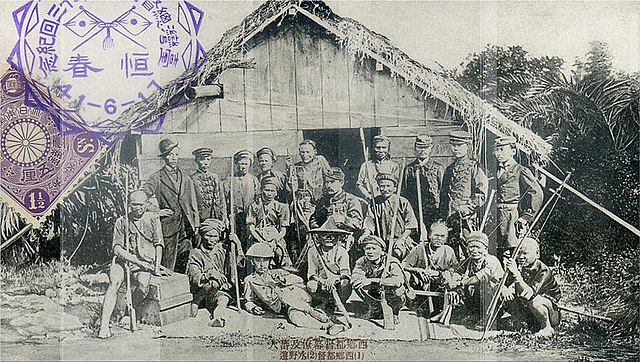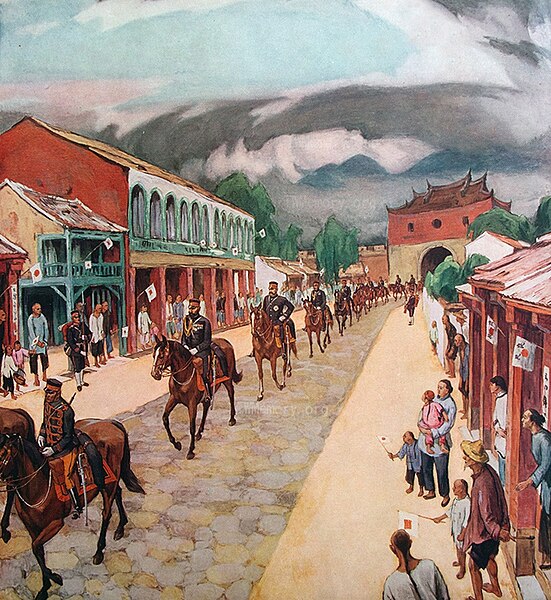Taiwanese Cultural Association
The Taiwanese Cultural Association was an important organization during the Japanese rule of Taiwan. It was founded by Chiang Wei-shui on 17 October 1921, in Daitōtei, a district in modern-day Taipei, gathering Taiwanese intellectuals and aiming for the delivery of progressive ideas and values. It also functions as a political group advocating for Taiwanese collective consciousness and thought. The first foundation day was held on October 17, 1921, when Lin Hsien-tang (林獻堂) was elected as president, Yang Chi-chen (楊吉臣) as assistant vice president, and Chiang Wei-shui (蔣渭水) as director.
The commemorative group photo of the first board meeting of the Taiwanese Cultural Association.
Taiwan under Japanese rule
The island of Taiwan, together with the Penghu Islands, became a dependency of Japan in 1895, when the Qing dynasty ceded Fujian-Taiwan Province in the Treaty of Shimonoseki after the Japanese victory in the First Sino-Japanese War. The consequent Republic of Formosa resistance movement on Taiwan was defeated by Japan with the capitulation of Tainan. Japan ruled Taiwan for 50 years. Its capital was located in Taihoku (Taipei) led by the Governor-General of Taiwan.
Saigō with leaders of the Seqalu tribe in Taiwan
Japanese painting of the expedition forces attacking the Mudan tribe, 1874
Painting of Japanese soldiers entering the city of Taipeh (Taipei) in 1895 after the Treaty of Shimonoseki
Insurgents captured during the Seirai-an Temple Incident, 1915





